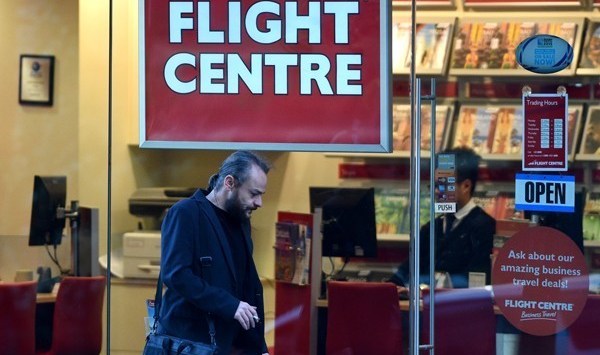

Flight Centre has successfully appealed an $11 million dollar fine imposed by the Federal Court last year for anti-competitive behaviour.
The judgment, handed down on Friday afternoon, brings to an end a three-year legal battle.
The Australian Competition and Consumer Commission (ACCC) initiated proceedings in March 2012, alleging that Flight Centre attempted to enter price-fixing arrangements with Singapore Airlines, Malaysian Airlines and Emirates six times between 2005 and 2009.
The original Federal Court judgement and accompanying penalty was handed down in December 2013, finding that the company had engaged in anti-competitive conduct with three airlines.
Flight Centre will now be reimbursed in full – with the multi-million dollar figure to be included in the company’s 2015-16 financial results.
The consumer watchdog has also been ordered to pay the company’s legal costs for both the initial case as well as the appeal heard by the full bench of the Federal Court.
Flight Centre’s managing director, Graham Turner, says Flight Centre welcomes the judgment and hopes it will bring six years of legal action to an end.
“As we said when the ACCC initiated this test case, for more than 30 years Flight Centre has sought to deliver cheaper airfares to the travelling public,” Turner says.
“The company is not in the business of attempting to make airfares more expensive.”
Turner also defended the company’s behaviour, arguing it was only logical the business would ask for commissions and “reasonable access” to deals from suppliers.
“This is a logical and natural business request for an agent to make to ensure the customers it serves on behalf of airlines are not disadvantaged,” he says.
“Given that travel agents book up to 80% of international flights in Australia, it benefits consumers because it means special offers are not solely available from supplier websites.”
Meanwhile, ACCC chairman Rod Sims says the competition regulator will consider its next move.
“The ACCC took this action because of its concern that Flight Centre’s conduct could harm competition and ultimately affect the prices available to consumers,” Sims says.
“If it had been successful in its conduct, Flight Centre’s actions were likely to have meant that consumers would not have seen the benefit of competition through lower ticket prices offered online by the airlines concerned. Pursuing anti-competitive agreements and practices to protect consumers remains one of the ACCC’s enduring enforcement priorities.”
Howard Rapke, partner at Holding Redlich, previously told SmartCompany businesses need to be mindful of behaviour that is or is perceived to be anti-competitive because the consumer watchdog takes these matters very seriously.
“The ACCC sees it as very serious and as an important part of their statutory role,” Rapke said.
“Clearly the ACCC as a regulator wants to be seen to be deterring what it sees as anti-competitive conduct. I think it’s crucial for officers and directors of a company to be very well informed about what the consequences are of a breach of the competition laws.”


COMMENTS
SmartCompany is committed to hosting lively discussions. Help us keep the conversation useful, interesting and welcoming. We aim to publish comments quickly in the interest of promoting robust conversation, but we’re a small team and we deploy filters to protect against legal risk. Occasionally your comment may be held up while it is being reviewed, but we’re working as fast as we can to keep the conversation rolling.
The SmartCompany comment section is members-only content. Please subscribe to leave a comment.
The SmartCompany comment section is members-only content. Please login to leave a comment.